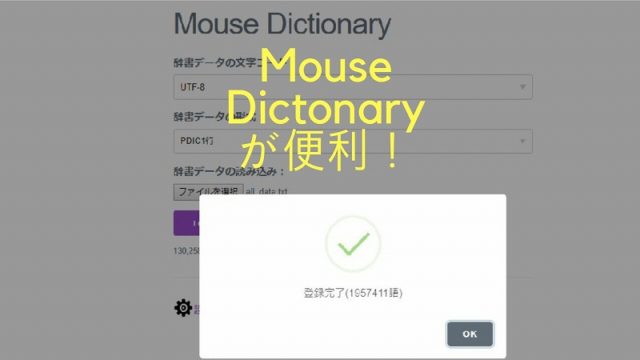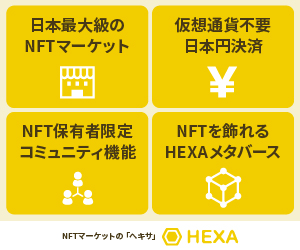いろんな接続詞で英語表現をパワーアップ
オンライン英会話のレッスンをしている時、ほとんどの箇所でand thenを使おうとする私に対して講師の方はよく、いろんな接続詞を使った方がよいですよと言われたことを思い出しましたので、よく使いそうな接続詞を書いておこうと思います。
「接続詞」は英語の文章において重要な役割を果たします。それぞれの接続詞の意味と使用例を紹介しますので、ぜひ目次として活用してみてください。また、それぞれの接続詞の使い方の違いも解説していますので、是非参考にしてみてください。
- However (しかしながら)
- Therefore (それゆえに)
- Moreover (さらに)
- Nonetheless (それにもかかわらず)
- In addition (さらに)
- Furthermore (さらに)
- Consequently (その結果)
- Nevertheless (それにもかかわらず)
- Meanwhile (その間に)
- On the other hand (一方で)
- Otherwise (さもなければ)
- Thus (したがって)
- Similarly (同様に)
- As a result (その結果)
- In contrast (対照的に)
- In contrast (対照的に)
- Instead (その代わりに)
- Subsequently (その後)
- Conversely (逆に)
- In fact (実際には)
- Alternatively (あるいは、代わりに)
- In summary (まとめると)
- In the meantime (その間に)
- Otherwise (さもなければ、それ以外の場合は)
- Eventually (結局は、最終的に)
- Conversely (逆に)
- Accordingly (それに応じて、したがって)
However (しかしながら)
- 例1:I studied hard; however, I still failed the exam. (私は一生懸命勉強しましたが、それでも試験に落ちました。)
- 例2:She didn’t agree with his decision; however, she supported him. (彼女は彼の決定には同意しなかったが、彼をサポートしました。)
- 例3:The weather forecast predicted rain; however, it turned out to be a sunny day. (天気予報では雨が予想されましたが、結果的には晴れた日でした。)
- 例4:He didn’t have much experience; however, he got the job. (彼はあまり経験がありませんでしたが、その仕事を得ました。)
- 例5:The movie received mixed reviews; however, it was a box office success. (その映画は評判が賛否両論でしたが、興行的には成功しました。)
「however」はある情報と逆の情報を導入する際に使われます。例示した場面では、努力にもかかわらず結果が思わしくなかったり、意見が相反したりする状況に使用されます。
Therefore (それゆえに)
- 例1:She studied hard, and therefore, she passed the exam. (彼女は一生懸命勉強したので、試験に合格しました。)
- 例2:The project was behind schedule; therefore, they had to work overtime. (プロジェクトが予定より遅れていたため、彼らは残業しなければなりませんでした。)
- 例3:The store offered a discount; therefore, many customers flocked to buy the product. (その店舗は割引を提供したので、多くの顧客が商品を買い求めました。)
- 例4:He forgot his lunch at home; therefore, he had to buy food from the cafeteria. (彼はランチを家に忘れてしまったため、学食で食べ物を買わなければなりませんでした。)
- 例5:The traffic was heavy; therefore, they decided to take a different route. (交通量が多かったので、彼らは別の道を選ぶことにしました。)
「therefore」はある条件や原因に基づいて結果を示すために使われます。前提となる情報から必然的に導かれる結論を表現する際に用いられます。
Moreover (さらに)
- 例1:She is intelligent, and moreover, she is hardworking. (彼女は賢い上に、勤勉です。)
- 例2:The restaurant not only offers delicious food but moreover provides excellent service. (そのレストランは美味しい料理を提供するだけでなく、優れたサービスも提供しています。)
- 例3:He is talented in singing; moreover, he is a skilled dancer. (彼は歌唱力に優れている上に、優れたダンサーでもあります。)
- 例4:The book is not only informative but moreover beautifully illustrated. (その本は知識があるだけでなく、美しくイラストが描かれています。)
- 例5:They have a great location, and moreover, the prices are reasonable. (彼らの立地は素晴らしい上に、価格も手頃です。)
「moreover」は主張や情報を補完するために使われます。さらに追加の要素や情報を提供する際に使用されます。
Nonetheless (それにもかかわらず)
- 例1:He was tired; nonetheless, he continued working. (彼は疲れていたが、それにもかかわらず働き続けました。)
- 例2:She didn’t have much time; nonetheless, she managed to finish the project. (彼女は時間があまりありませんでしたが、それにもかかわらずプロジェクトを終えることができました。)
- 例3:The movie received mixed reviews; nonetheless, it became a box office hit. (その映画は評価が賛否両論でしたが、それにもかかわらず興行的には大ヒットとなりました。)
- 例4:They faced many challenges; nonetheless, they never gave up. (彼らは多くの困難に直面しましたが、それにもかかわらず決して諦めませんでした。)
- 例5:The weather was unfavorable; nonetheless, they enjoyed their outdoor picnic. (天候は良くありませんでしたが、それにもかかわらず彼らは屋外のピクニックを楽しみました。)
「nonetheless」は、前提や予想とは反対の結果や行動を示す際に使用されます。逆の状況や意見を導入し、それにもかかわらず起こった出来事や行動を強調します。
In addition (さらに)
- 例1:They have a beautiful garden. In addition, they have a swimming pool. (彼らは美しい庭を持っています。さらに、彼らはプールも持っています。)
- 例2:The hotel offers comfortable rooms. In addition, they provide complimentary breakfast. (そのホテルは快適な部屋を提供しています。さらに、無料の朝食も提供しています。)
- 例3:She speaks fluent English. In addition, she is proficient in French. (彼女は流暢な英語を話します。さらに、彼女はフランス語にも堪能です。)
- 例4:He has a good sense of humor. In addition, he is a talented musician. (彼はユーモアのセンスがあります。さらに、彼は才能あるミュージシャンでもあります。)
- 例5:The company offers competitive salaries. In addition, they provide excellent benefits. (その会社は競争力のある給与を提供しています。さらに、優れた福利厚生も提供しています。)
「In addition」は既存の情報に追加の要素を示す際に使われます。さらなる情報や要素を提供するために使用されます。
Furthermore (さらに)
- 例1:She is talented in singing. Furthermore, she plays multiple musical instruments. (彼女は歌唱力に優れています。さらに、彼女は複数の楽器を演奏します。)
- 例2:The company offers competitive salaries. Furthermore, they prioritize employee growth and development. (その会社は競争力のある給与を提供しています。さらに、従業員の成長とキャリア開発を重視しています。)
- 例3:He is dedicated to his work. Furthermore, he is always willing to help his colleagues. (彼は仕事に献身的です。さらに、彼はいつも同僚を助ける意欲があります。)
- 例4:The research provides valuable insights. Furthermore, it suggests practical solutions for the problem. (その研究は貴重な示唆を提供します。さらに、問題に対する実用的な解決策を示しています。)
- 例5:The project is well-organized. Furthermore, it has clear goals and milestones. (そのプロジェクトはきちんと組織されています。さらに、明確な目標とマイルストーンがあります。)
「Furthermore」は前述の情報を強化するために使われます。追加の情報や要素を提示し、さらに主張を補完する役割を果たします。
Consequently (その結果)
- 例1:He missed the train, and consequently, he was late for the meeting. (彼は電車に乗り遅れ、その結果、会議に遅れました。)
- 例2:The company faced financial difficulties. Consequently, they had to downsize their workforce. (その会社は財務的な困難に直面しました。その結果、彼らは労働力を削減しなければなりませんでした。)
- 例3:They neglected their health, and consequently, they fell ill. (彼らは健康を無視し、その結果、病気になりました。)
- 例4:She studied hard, and consequently, she passed the exam with flying colors. (彼女は一生懸命勉強し、その結果、試験に見事合格しました。)
- 例5:The team worked efficiently, and consequently, they completed the project ahead of schedule. (チームは効率的に働き、その結果、予定よりも早くプロジェクトを完了しました。)
「Consequently」は原因と結果の関係を示す際に使われます。ある行動や状況が特定の結果をもたらすことを強調する役割を担います。
Nevertheless (それにもかかわらず)
- 例1:The weather forecast predicted rain; nevertheless, they decided to go on a picnic. (天気予報は雨を予測していましたが、それにもかかわらず彼らはピクニックに行くことにしました。)
- 例2:She faced numerous challenges; nevertheless, she remained determined to achieve her goals. (彼女は数々の困難に直面しましたが、それにもかかわらず彼女は目標を達成するために決意を持ち続けました。)
- 例3:The movie received negative reviews; nevertheless, it managed to attract a large audience. (その映画は否定的な評価を受けましたが、それにもかかわらず多くの観客を引きつけることに成功しました。)
- 例4:They had limited resources; nevertheless, they created a remarkable piece of artwork. (彼らは限られたリソースしか持っていませんでしたが、それにもかかわらず素晴らしい芸術作品を作り上げました。)
- 例5:He was afraid of heights; nevertheless, he decided to conquer his fear and go skydiving. (彼は高所恐怖症でしたが、それにもかかわらず恐怖を克服し、スカイダイビングに挑戦することにしました。)
「Nevertheless」は、逆の要素や状況を導入して、それにもかかわらず起こる出来事や行動を示します。対立する要素を比較する際に使用され、逆説的な関係を強調します。
Meanwhile (その間に)
- 例1:She was studying for her exams. Meanwhile, her friends were watching a movie. (彼女は試験勉強をしていました。その間に、彼女の友人たちは映画を観ていました。)
- 例2:He was cooking dinner. Meanwhile, his wife was setting the table. (彼は夕食を作っていました。その間に、彼の妻はテーブルをセットしていました。)
- 例3:The team was working on the project. Meanwhile, the manager was attending a conference. (チームはプロジェクトに取り組んでいました。その間に、マネージャーは会議に出席していました。)
- 例4:The baby was napping. Meanwhile, the parents were doing household chores. (赤ちゃんは昼寝していました。その間に、両親は家事をしていました。)
- 例5:He was stuck in traffic. Meanwhile, his colleagues were preparing for the meeting. (彼は渋滞に巻き込まれていました。その間に、彼の同僚たちは会議の準備をしていました。)
「Meanwhile」は、同時に起こる異なる出来事を示す際に使用されます。一方の状況や行動が進行中である間に、他の状況や行動が同時に行われていることを表現します。
On the other hand (一方で)
- 例1:He enjoys playing sports. On the other hand, his sister prefers reading books. (彼はスポーツをすることが好きです。一方で、彼の姉は本を読むことを好みます。)
- 例2:The new restaurant has delicious food. On the other hand, the service can be slow at times. (新しいレストランの料理はおいしいです。一方で、サービスは時々遅いことがあります。)
- 例3:The movie received mixed reviews. On the other hand, the performances by the actors were highly praised. (その映画は評価が分かれました。一方で、俳優たちの演技は高く評価されました。)
- 例4:He is skilled at writing, but on the other hand, he struggles with public speaking. (彼は文章を書くのが得意ですが、一方で、公演は苦手です。)
- 例5:The product is expensive, but on the other hand, it offers exceptional quality. (その製品は高価ですが、一方で、優れた品質を提供しています。)
「On the other hand」は、対照的な二つの要素や状況を比較する際に使用されます。一方の事柄がある一面を示した後、反対の事柄を導入する役割を担います。
Otherwise (さもなければ)
- 例1:You should hurry; otherwise, you’ll miss the bus. (急いだ方がいいよ。そうでなければ、バスに乗り遅れるよ。)
- 例2:Turn off the lights; otherwise, the electricity bill will be high. (ライトを消して。そうしないと、電気代が高くなるよ。)
- 例3:Follow the instructions; otherwise, you might make a mistake. (指示に従って。そうしないと、間違えるかもしれないよ。)
- 例4:Eat your vegetables; otherwise, you won’t grow strong and healthy. (野菜を食べなさい。そうしないと、強く健康に育ちませんよ。)
- 例5:Study hard; otherwise, you won’t pass the exam. (一生懸命勉強しなさい。そうしないと、試験に合格できませんよ。)
「Otherwise」は、特定の条件が満たされない場合に起こる結果や行動を示します。条件が満たされない場合に警告や助言をする際に使用されます。
Thus (したがって)
- 例1:She studied hard for the exam and received a high score. Thus, her efforts paid off. (彼女は試験勉強に一生懸命取り組み、高い点数を取りました。したがって、彼女の努力が報われました。)
- 例2:The team worked together efficiently, thus completing the project ahead of schedule. (チームは効率的に協力して作業を進め、したがって予定よりも早くプロジェクトを完了しました。)
- 例3:He saved money consistently, thus being able to afford his dream vacation. (彼は一貫してお金を貯めたため、したがって夢のバケーションを楽しむことができました。)
- 例4:She apologized for her mistake and offered a solution. Thus, resolving the issue amicably. (彼女は自分の間違いを謝罪し、解決策を提案しました。したがって、問題は円満に解決しました。)
- 例5:He trained diligently every day, thus improving his skills significantly. (彼は毎日熱心にトレーニングを行い、したがってスキルが大幅に向上しました。)
「Thus」は、結果や帰結を導き出す際に使用されます。前提や条件から結論を導き出す場合に使われ、原因と結果の関係を示します。
Similarly (同様に)
- 例1:Tom enjoys playing basketball. Similarly, his sister loves playing soccer. (トムはバスケットボールをすることが好きです。同様に、彼の姉はサッカーが大好きです。)
- 例2:John is good at math. Similarly, his friend Sarah excels in science. (ジョンは数学が得意です。同様に、彼の友人のサラは科学に優れています。)
- 例3:The restaurant offers a variety of dishes. Similarly, the café has a wide selection of desserts. (そのレストランはさまざまな料理を提供しています。同様に、そのカフェは幅広いデザートの選択肢があります。)
- 例4:He enjoys reading books. Similarly, his classmates are avid readers. (彼は本を読むことが好きです。同様に、彼のクラスメートも熱心な読者です。)
- 例5:She is passionate about painting. Similarly, her brother has a strong interest in photography. (彼女は絵画に情熱を持っています。同様に、彼女の兄は写真に強い興味を持っています。)
「Similarly」は、類似した事柄や状況を比較する際に使用されます。一つの事柄や要素が他の事柄や要素と共通点を持っていることを示します。
As a result (その結果)
- 例1:She studied diligently, and as a result, she received excellent grades. (彼女は一生懸命勉強し、その結果、優れた成績を収めました。)
- 例2:He trained consistently, and as a result, he became a skilled athlete. (彼は一貫してトレーニングをし、その結果、優れた選手になりました。)
- 例3:They saved money every month, and as a result, they were able to buy their dream house. (彼らは毎月お金を貯め、その結果、夢の家を購入することができました。)
- 例4:The team worked together efficiently, and as a result, they won the championship. (チームは効率的に協力し、その結果、彼らはチャンピオンシップを勝ち取りました。)
- 例5:She practiced playing the piano every day, and as a result, she performed beautifully at the recital. (彼女は毎日ピアノの練習をし、その結果、発表会で美しい演奏を披露しました。)
「As a result」は、ある行動や状況の結果を示す際に使用されます。その行動や状況によって生じる結果を強調し、因果関係を表します。
In contrast (対照的に)
- 例1:The weather is sunny today, but in contrast, it was rainy yesterday. (今日は天気が晴れていますが、対照的に昨日は雨でした。)
- 例2:He is tall, but in contrast, his brother is short. (彼は背が高いですが、対照的に彼の兄は背が低いです。)
- 例3:The first movie was action-packed, while in contrast, the second movie was a romantic comedy. (最初の映画はアクション満載でしたが、対照的に、2番目の映画はロマンティックコメディでした。)
- 例4:She is extroverted and enjoys socializing, whereas in contrast, he is introverted and prefers solitude. (彼女は外向的で社交的な人ですが、対照的に、彼は内向的で孤独を好みます。)
- 例5:The first painting is vibrant and colorful, but in contrast, the second painting is monochromatic and minimalist. (最初の絵画は活気に満ちてカラフルですが、対照的に、2番目の絵画はモノクロでミニマリストです。)
「In contrast」は、二つの対立する事柄や要素を比較する際に使用されます。一つの事柄や要素が他の事柄や要素と対照的な特徴を持っていることを示します。
In contrast (対照的に)
- 例1:She is tall, but her sister is short. In contrast to her, her sister prefers dancing. (彼女は背が高いが、彼女の姉は背が低い。彼女とは対照的に、彼女の姉はダンスを好む。)
- 例2:The weather was sunny yesterday, but today it is raining. In contrast to yesterday, people are carrying umbrellas today. (昨日は天気が晴れだったが、今日は雨だ。昨日とは対照的に、今日は人々が傘を持っている。)
- 例3:He enjoys action movies, but his friend prefers romantic comedies. In contrast to him, his friend finds romantic stories more appealing. (彼はアクション映画が好きだが、彼の友人はロマンティックなコメディが好きだ。彼とは対照的に、彼の友人はロマンティックなストーリーがより魅力的だと考えている。)
- 例4:The first book was a mystery novel, and the second book was a fantasy novel. In contrast to the first book, the second book had magical creatures and enchanted lands. (最初の本はミステリー小説で、2冊目の本はファンタジー小説だった。最初の本とは対照的に、2冊目の本には魔法の生物や魔法にかけられた土地が登場していた。)
- 例5:He prefers tea, but his brother likes coffee. In contrast to him, his brother enjoys the bold flavor and aroma of coffee. (彼は紅茶が好きだが、彼の兄はコーヒーが好きだ。彼とは対照的に、彼の兄はコーヒーの濃厚な味と香りを楽しんでいる。)
「In contrast」は、2つの対照的な要素や状況を比較する際に使用されます。一方と他方の間に存在する対比を示し、相違点を強調します。
Instead (その代わりに)
- 例1:I don’t want to eat cake; instead, I prefer to have ice cream. (私はケーキを食べたくありません。その代わりにアイスクリームが好きです。)
- 例2:She decided not to go shopping; instead, she chose to stay home and read a book. (彼女は買い物に行くことを決めませんでした。その代わりに家にいて本を読むことを選びました。)
- 例3:He didn’t buy a new car; instead, he invested the money in stocks. (彼は新しい車を買わなかった。その代わりにお金を株式に投資しました。)
- 例4:They didn’t go on a vacation; instead, they decided to save money for their future plans. (彼らは休暇に行かなかった。その代わりに将来の計画のためにお金を貯めることにしました。)
- 例5:He didn’t watch TV; instead, he went for a walk in the park. (彼はテレビを見なかった。その代わりに公園で散歩に行きました。)
「Instead」は、ある選択肢や行動を別のものに置き換える際に使用されます。代わりに行うことや選ぶことを表します。
Subsequently (その後)
- 例1:She missed the train and subsequently arrived late for work. (彼女は電車に乗り遅れ、その後仕事に遅れて到着しました。)
- 例2:They lost the game and subsequently felt disappointed. (彼らは試合に負け、その後失望感を抱きました。)
- 例3:He failed the exam and subsequently studied harder for the next one. (彼は試験に失敗し、その後次の試験のために一生懸命勉強しました。)
- 例4:The company faced financial difficulties and subsequently implemented cost-cutting measures. (会社は財務上の困難に直面し、その後、コスト削減策を実施しました。)
- 例5:They broke up and subsequently moved on with their lives. (彼らは別れ、その後自分たちの人生を前に進めました。)
「Subsequently」は、ある事象や出来事が後に続いて起こることを示します。時間的な連続性や因果関係を表します。
Conversely (逆に)
- 例1:He is good at math; conversely, he struggles with English. (彼は数学が得意です。逆に英語に苦戦しています。)
- 例2:She loves summer; conversely, she dislikes winter. (彼女は夏が大好きです。逆に冬が嫌いです。)
- 例3:He enjoys swimming; conversely, he dislikes running. (彼は泳ぐことが好きです。逆に走ることは好きではありません。)
- 例4:She is outgoing and enjoys socializing; conversely, her sister is introverted and prefers solitude. (彼女は社交的で人と交流することが好きです。逆に彼女の姉は内向的で、ひとりでいることを好みます。)
- 例5:He loves cats; conversely, he is allergic to dogs. (彼は猫が大好きです。逆に犬にアレルギーがあります。)
「Conversely」は、対照的な二つの事柄や状況を逆に対比する際に使用されます。逆の立場や逆の要素を示します。
In fact (実際には)
- 例1:She said she was busy, but in fact, she was just procrastinating. (彼女は忙しいと言っていましたが、実際にはただ先延ばししているだけでした。)
- 例2:He claimed to have finished the project, but in fact, he hadn’t even started. (彼はプロジェクトを終えたと主張しましたが、実際にはまだ始めていませんでした。)
- 例3:The advertisement promised quick results, but in fact, the product was ineffective. (広告では素早い結果が約束されていましたが、実際にはその商品は効果がありませんでした。)
- 例4:They seemed happy together, but in fact, their relationship was falling apart. (彼らは一緒に幸せそうに見えましたが、実際にはその関係は崩れていました。)
- 例5:He claimed to have won the competition, but in fact, he came in second place. (彼はコンテストに勝ったと主張しましたが、実際には2位でした。)
「In fact」は、一般的な認識や主張とは逆に、実際の事実を示す際に使用されます。真実や実際の状況を強調します。
Alternatively (あるいは、代わりに)
- 例1:You can go by bus to the city center, or alternatively, you can take a taxi. (市内中心部までバスで行くこともできますし、あるいはタクシーを利用することもできます。)
- 例2:You can choose between the blue shirt or, alternatively, the red one. (青いシャツか、あるいは代わりに赤いシャツを選ぶことができます。)
- 例3:You can attend the morning session, or alternatively, you can attend the afternoon session. (午前のセッションに参加することもできますし、あるいは代わりに午後のセッションに参加することもできます。)
- 例4:You can have pasta for dinner, or alternatively, you can have a salad. (夕食にパスタを食べることもできますし、あるいは代わりにサラダを食べることもできます。)
- 例5:You can buy the book online, or alternatively, you can visit a bookstore. (その本をオンラインで購入することもできますし、あるいは代わりに書店に訪れることもできます。)
「Alternatively」は、選択肢の一つとして別の方法や代替案を示す際に使用されます。代わりに選ぶことができる選択肢を提示します。
In summary (まとめると)
- 例1:He studied hard, participated in extracurricular activities, and, in summary, achieved excellent grades. (彼は一生懸命勉強し、課外活動にも参加し、まとめると素晴らしい成績を収めました。)
- 例2:The project required extensive research, effective communication, and teamwork. In summary, it was a challenging but rewarding experience. (そのプロジェクトには広範な調査、効果的なコミュニケーション、チームワークが必要でした。まとめると、それは挑戦的ながらも報われる経験でした。)
- 例3:The movie had captivating visuals, an engaging storyline, and, in summary, received positive reviews from critics. (その映画は魅力的な映像、引き込まれるストーリーを持っており、まとめると批評家から好意的なレビューを受けました。)
- 例4:The workshop covered various topics such as leadership skills, effective time management, and problem-solving strategies. In summary, it provided valuable insights for personal growth. (そのワークショップではリーダーシップスキル、効果的な時間管理、問題解決の戦略などさまざまなトピックがカバーされました。まとめると、それは個人の成長に貴重な示唆を提供しました。)
- 例5:The book discussed historical events, influential figures, and societal changes. In summary, it offered a comprehensive overview of the subject. (その本は歴史的な出来事、影響力のある人物、社会の変化について議論しています。まとめると、それはそのテーマの包括的な概要を提供しました。)
「In summary」は、要点をまとめたり、簡潔にまとめたりする際に使用されます。全体を簡潔にまとめる役割を果たします。
In the meantime (その間に)
- 例1:She is waiting for her test results. In the meantime, she is focusing on her other projects. (彼女は試験の結果を待っています。その間に、彼女は他のプロジェクトに集中しています。)
- 例2:The repair will take a few hours. In the meantime, you can explore the surrounding area. (修理には数時間かかります。その間に、周辺地域を探索することができます。)
- 例3:He is preparing for the presentation. In the meantime, his colleague is handling the client inquiries. (彼はプレゼンテーションの準備をしています。その間に、彼の同僚が顧客の問い合わせに対応しています。)
- 例4:The train is delayed. In the meantime, passengers are advised to wait at the station. (電車が遅れています。その間に、乗客は駅で待つようにと案内されています。)
- 例5:The results of the experiment are pending. In the meantime, the researchers are analyzing the collected data. (実験の結果は保留中です。その間に、研究者たちは収集したデータを分析しています。)
「In the meantime」は、ある事柄が進行中の間に別の活動や状況を示す際に使用されます。その間の一時的な状態や活動を表します。
Otherwise (さもなければ、それ以外の場合は)
- 例1:Study hard, otherwise, you might fail the exam. (一生懸命勉強しなさい。さもなければ、試験に落ちるかもしれません。)
- 例2:Take an umbrella with you, otherwise, you will get wet in the rain. (傘を持って行きなさい。そうしないと雨に濡れますよ。)
- 例3:Follow the instructions, otherwise, the machine may malfunction. (指示に従いなさい。さもなければ、機械が故障する可能性があります。)
- 例4:Pay attention to the road signs, otherwise, you might get lost. (道路標識に注意しなさい。さもなければ、迷子になるかもしれません。)
- 例5:Submit your application on time, otherwise, it will not be considered. (締切通りに申請書を提出しなさい。そうしないと審査されません。)
「Otherwise」は、特定の条件が満たされない場合に示す際に使用されます。他の結果や状況を示し、ある条件を満たす必要があることを強調します。
Eventually (結局は、最終的に)
- 例1:He struggled at first, but eventually, he succeeded in achieving his goals. (最初は苦労しましたが、結局は目標を達成することに成功しました。)
- 例2:The project faced many obstacles, but eventually, it was completed on time. (そのプロジェクトは多くの障害に直面しましたが、最終的には予定通りに完了しました。)
- 例3:They had disagreements, but eventually, they reached a compromise. (彼らは意見の不一致がありましたが、最終的には妥協点に達しました。)
- 例4:The company experienced losses, but eventually, it managed to turn a profit. (その企業は損失を被りましたが、最終的には利益を上げることに成功しました。)
- 例5:She faced numerous challenges, but eventually, she overcame them and achieved her dreams. (彼女は多くの課題に直面しましたが、最終的にはそれを乗り越えて夢を実現しました。)
「Eventually」は、ある状況や過程が時間をかけて進行し、最終的に結果が得られることを示す際に使用されます。最終的な結果や結末を強調します。
Conversely (逆に)
- 例1:She loves sweets, but her brother, conversely, prefers savory snacks. (彼女は甘いものが大好きですが、逆に彼女の兄はしょっぱいお菓子を好みます。)
- 例2:He excels in sports; conversely, he struggles with academic subjects. (彼はスポーツが得意です。逆に学問の科目では苦労しています。)
- 例3:The product is expensive but high-quality. Conversely, the cheaper alternative is of lower quality. (その商品は高価ですが高品質です。逆に、安い代替品は品質が低いです。)
- 例4:She enjoys outdoor activities, whereas her best friend, conversely, prefers indoor hobbies. (彼女は屋外の活動が好きですが、逆に彼女の親友は屋内の趣味を好みます。)
- 例5:The team’s offense is strong, but conversely, their defense needs improvement. (チームの攻撃力は強いですが、逆に守備力は改善が必要です。)
「Conversely」は、逆の視点や対照的な要素を示す際に使用されます。ある事柄に対して反対の要素や逆の結果を示します。
Accordingly (それに応じて、したがって)
- 例1:The weather forecast predicts heavy rain; accordingly, we should bring umbrellas. (天気予報では大雨が予想されています。それに応じて、傘を持って行くべきです。)
- 例2:The prices of goods have increased; accordingly, the company will adjust its pricing strategy. (商品の価格が上昇しました。したがって、企業は価格戦略を調整します。)
- 例3:The event requires formal attire; accordingly, participants should dress accordingly. (そのイベントでは正装が必要です。したがって、参加者は適切に服装をするべきです。)
- 例4:The teacher provided additional resources; accordingly, the students can further explore the topic. (教師は追加の資料を提供しました。それに応じて、生徒はさらにそのトピックを探求することができます。)
- 例5:The project deadline has been extended; accordingly, the team will have more time to refine their work. (プロジェクトの締切が延長されました。したがって、チームは作業を改善するためにより多くの時間を持つことができます。)
「Accordingly」は、ある事柄に応じて適切な対応をする際に使用されます。原因や条件に基づいて、それに適した行動や結果が起こることを示します。
https://www.infobenry.com/free-lesson/






